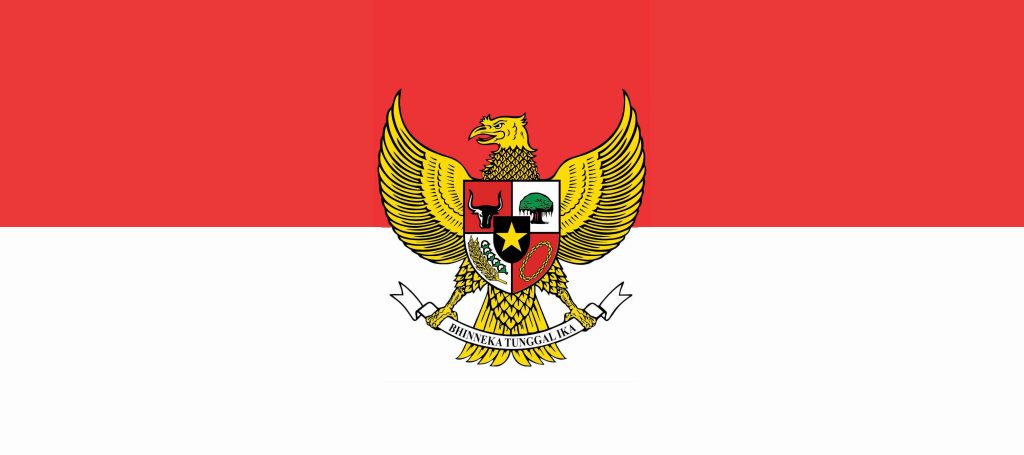
The Presidential Election is coming on 14 February 2024, and since this election will take place without an incumbent President in the running, the Indonesian population is discussing and anticipating what the presidency of each presidential candidate might entail.
To make your life a little bit easier, we have summarised the general information you might want to know about these presidential candidates, from their backgrounds to their policies. This summary aims to give you some foundational knowledge about the candidates and explore their visions and missions as presidential hopefuls.
All this information, including the policy platforms presented by each candidate pair, are drawn from public interviews and their respective official pamphlets outlining their work plans.
Candidates for Indonesia’s Presidential Election
Click to jump ahead:
No.1 : Anies Baswedan and Muhaimin Iskandar
No. 2: Prabowo Subianto and Gibran Rakabuming Raka
No. 3: Ganjar Pranowo and Mahfud MD
No.1 : Anies Baswedan and Muhaimin Iskandar
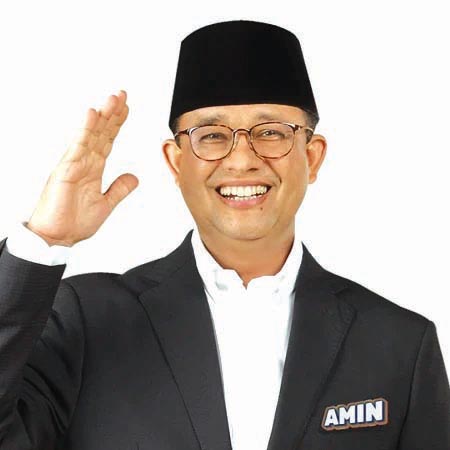
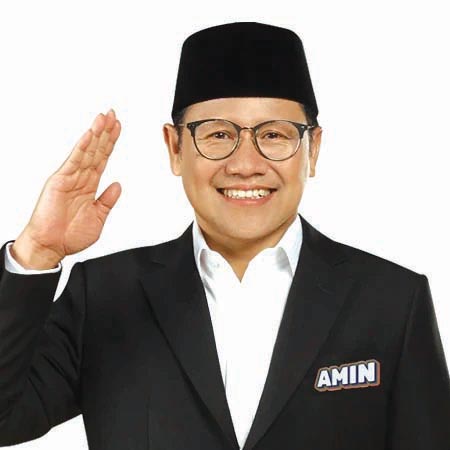
Anies Rasyid Baswedan, born on 7 May 1969, in Kuningan, West Java, hailed from an academic lineage. Both of his parents were lecturers at a university in Yogyakarta, and he himself pursued an economics degree at Gadjah Mada University (UGM) where he was actively involved in student organisations like the Islamic Students’ Association (HMI). Anies furthered his studies abroad, obtaining a Master’s Degree from the University of Maryland and a PhD in political science from Northern Illinois University. Upon returning to Indonesia, he became the youngest rector at Paramadina University before delving into politics.
Anies entered the political sphere participating in the Democratic Party (Partai Demokrat) Convention preceding the 2014 Presidential Election. His subsequent roles included being a campaign spokesperson for Jokowi and serving as Minister of Education and Culture until his dismissal in 2016. Anies secured victory in the election for Jakarta Governor for the term 2017-2022, which was marked by controversies and accusations of employing identity politics.
Regarding the work plan, program, vision, and mission of Presidential Candidate Pair No.1:
On Education; they will advocate for accessible higher education, stressing affordability and government responsibility to alleviate financial burdens; they also plan to emphasise substantial investments to enhance education quality, proposing science laboratories, workshops, and libraries for needy schools.
On Health, they aim for comprehensive healthcare access from pregnancy onwards, emphasising reliable and discrimination-free services. When it comes to Employment, they aspire for economic development in multiple Indonesian cities, envisioning at least 14 cities as hubs for equitable job opportunities, while highlighting the need for state intervention to mitigate social disparities in urban areas.
In regards to Corruption Eradication, Presidential Candidate Pair No. 1 calls for robust oversight to prevent the Anti-Corruption Commission (KPK) from undermining anti-corruption practices and advocates for an independent KPK role in anti-corruption efforts, devoid of favouritism, while fostering cooperation with law enforcement.
On Freedom of Expression, they support critiques against the government, especially by academic institutions, stressing the importance of speaking up against injustice. They also aim to refine regulations hindering freedom of speech, assembly, and expression.
About the Climate Crisis, this pair stresses the importance of technocratic oversight in determining strategic programs, cautioning against business-driven proposals. They also highlight the ecological repercussions of development without an environmental vision, emphasising the biodiversity crisis as a critical concern.
No. 2: Prabowo Subianto and Gibran Rakabuming Raka
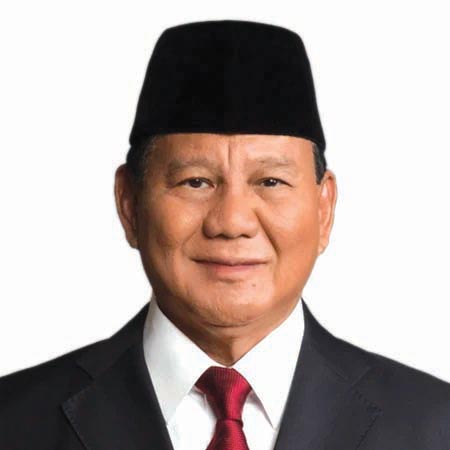

Prabowo Subianto, the current Minister of Defense and Security for the 2019-2024 term, boasts a rich and varied background. Born in Jakarta on 17 October 1951, he hails from a lineage deeply entrenched in Indonesia’s political and economic fabric.
His journey spans military service, marked by notable involvements in historical operations, including allegations of abducting activists, actions he claimed were carried out as part of his duty, ie following orders, and a subsequent foray into the business world. His political trajectory commenced with a bid for the Golkar Party’s Presidential Convention in 2004. Establishing the Gerindra Party in 2008, he aligned with Megawati of the PDI Perjuangan Party in the 2009 elections. Having contested presidential elections in 2014 and 2019, Prabowo now vies for the presidency for the third time in 2024.
Delving deeper into the work plan, program, vision, and mission of Presidential Candidate Pair No.2:
On Education, they emphasise financial allocation and systemic enhancements to enable investment in research, schools, and universities. Aiming for 1.5-2.0% of GDP allocated to research and innovation within five years.
For Health, they are advocating for universal lunches in schools to ensure proper nutrition, combat stunting, and uplift the quality of life for Indonesian children.
On Employment, they are focusing on down-streaming and industrialisation within Indonesia’s borders to foster job creation and economic growth.
On Eradicating Corruption, this pair proposes a systemic approach and substantial salary increments for officials, with a balanced strategy between prevention and law enforcement in fighting corruption.
For Freedom of Expression, they frequently state the importance of monitoring misinformation, hate speech, and preserving freedom of expression to ensure checks and balances.
Concerning the Climate Crisis, they are pushing for water self-sufficiency and alternative green energy development to mitigate climate challenges.
No. 3: Ganjar Pranowo and Mahfud MD
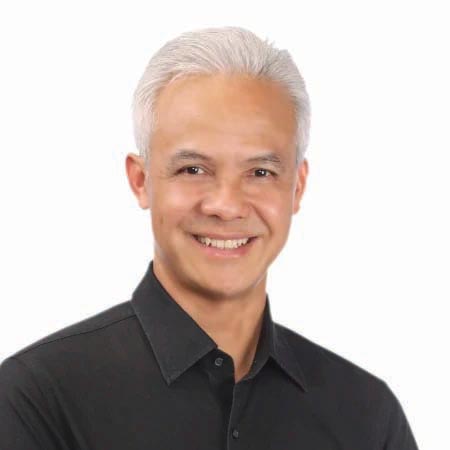

Ganjar Pranowo, born on 28 October 28 1968, in Karanganyar, Central Java, and emerged into the political landscape during the reformation era. His involvement in various student movements and subsequent entry into the Indonesian Democratic Party of Struggle (PDI-P) at a young age illustrating his commitment to the party and to the world of politics.
His professional journey unfolded through academic pursuits and active participation in governmental structures. He engaged in the House of Representatives, serving in vital commissions and becoming a pivotal figure in overseeing crucial cases. Ganjar’s ascendancy continued as he assumed the role of Governor of Central Java in 2013, securing a second term in 2018. His terms were not without controversy, with two mining projects opening in Central Java during his tenures that were said to put society and/or environment at risk.
Ganjar Pranowo’s presidential candidacy echoes a multifaceted approach to key societal domains:
For Education, he emphasises the significance of digital education, advocating for increased innovation among children. His vision includes breaking the cycle of poverty by ensuring that at least one child from every impoverished family attains a bachelor’s degree, alongside advocating for improved incomes for educators.
On Health, Pair No.3 extends their vision to holistic healthcare, from prenatal to posthumous care, advocating for accessible primary healthcare facilities, employing a ‘1 Village — 1 Health Centre’ model.
On Employment and Economic Growth, they stress the importance of meticulous planning in workforce management, encourage entrepreneurship and outline strategies to escape the middle-income trap by boosting cooperatives, SMEs, and new businesses, leveraging infrastructure, digital economies, and sustainable practices.
When it comes to Anti-Corruption Measures, their agenda revolves around fortifying anti-corruption agencies, seeking regulatory revisions, and integrating technology to safeguard state assets against corrupt practices.
On Freedom of Expression, this pair highlights the importance of civil liberties, advocating for the free expression of opinions and information dissemination, and acknowledging constructive criticism without punitive measures.
Regarding the Climate Crisis, they acknowledge the urgent need for renewable energy adoption and propose an ambitious plan to significantly reduce reliance on polluting energy sources.
We hope this brief overview will help you to decide who will be the best pairing to help Indonesia obtain its next level of development not only economically but culturally and environmentally with balanced growth across the nation and most importantly justice and equality taking their part as well. We encourage all to vote and be part of the rich reward of Indonesia’s young democratic system. Here’s to a fair and safe presidential election.






